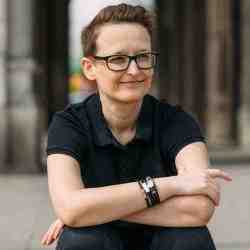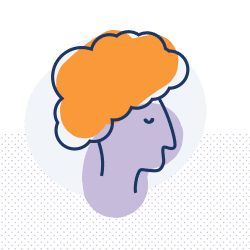Introduction
Reconciling the sectors of technology and social economy in France, Frederic Bardeau is developing new mechanisms of social inclusion and full citizenship. Based on the enormous demand for people who have basic digital knowledge such as coding and information technology, he is opening unexplored integration opportunities in the web sector to offer immediate sustainable work for at-risk populations. His packaged solution is easily replicable to various populations and is now virally boosting local socio-economic development in France and abroad
The New Idea
Predicated on a web sector that is exponentially growing (35,000 openings in 2014), but is failing to recruit, Frederic has launched a pioneering platform using digital technology for social inclusion. Targeting only low-qualified and long-term unemployed people, he has designed a “Swiss army knife” for education, with free and intensive 6-month trainings. Developing basic digital knowledge and cultivating the skills needed for the 21st century, Frederic offers these individuals the opportunity to enter a world of greater employment possibility and adapt to the rapid changes of the web market over the long run. Through his centers, he creates new conditions to transform excluded people – especially the young and women - into highly-demanded individuals in the labor market, such as web developers, digital referents or data managers in companies. His success relies on a dynamic pedagogy based on “learning by doing” and peer training that aims at developing skills to succeed over the long term. In France, a few top engineering schools that offer IT and web diplomas over three to five years on complex coding. Instead, Frederic focuses on simple coding, adapting his lessons to the rapid changes in the web sector. Second, he invests in the development of soft skills like curiosity, creativity and self-learning, as well as leadership and self-esteem. In addition, convinced that knowing code is an asset for a citizen, Frederic also raises the awareness of his trainees on empathy, social innovation and changemaking. Through the facilitation of kids’ coding workshops or the support to launch their own IT social enterprises, Frederic is encouraging the emergence of a generation of web changemakers. Frederic is cultivating a new idea that shifts the perception of job integration – from accessing a position in a company to being armed to create your own job opportunities - and is becoming a new reference in the field. After only a year and a half of activity, he is gaining high recognition from the government and spreading virally. To massively replicate and scale his impact, he carefully selects local ecosystems to ensure that they can welcome a SIMPLON center. He also smartly combines an open replication model, key public and private partnerships, and a hybrid model with a for-profit company that generates income by selling coding programs and “hackathons” to
companies. As a result, four training centers are already open, from disadvantaged urban suburbs of France and Romania, to abandoned rural areas; and 150 projects are under progress in Europe and Africa, with a high adaptability to local socio-economic contexts and specific inclusion issues around women, youth, prisoners and more.
The Problem
Since the eighties, the unemployment rate has constantly increased in France to reach 10% of the population, and more than 20% for young people between 15 and 25 years old. If several professional integration programs exist, run by public players or social enterprises, most of them fail to adapt themselves to the rapid changes and new needs of the labor market. The digital sector is a perfect illustration of this phenomenon. The field is going exponentially, with huge needs in terms of human resources, but is failing to recruit the right profiles on the French market. A recent study from McKinsey and Company highlights that the digital sector represented 1.15 million jobs in 2012 with a net creation of 700,000 job and 450,000 more expected by 2015. Regarding web coding specifically, 35,000 recruitments were expected in 2014 but the lack of available skills in the market has slowed down this opportunity. Besides, the sector fails to attract talents from diversity: only 27% of women; very few seniors or people with different abilities. To bridge the gap between supply and demand in this market, radical changes are needed in training. Today, existing programs are not able to fill the needs. On the one hand, public agencies and integration organizations develop the learning of basic computer skills for disadvantaged people. If they are useful in terms of enlarging someone’s toolbox to access the labor market, they do not enable direct professional integration. On the other hand, high-level engineering programs for post-graduate students are developing new programs for complex coding. Among them, the popular School 42 founded by Xavier Niels, the CEO of Free, offer a free training, but only for an elite cohort of young people selected after 48 hours of intensive coding. When it comes to engaging long-term and lesser-qualified groups of people, the activities of existing job-integration social enterprises do not match the market, and none of these is currently positioned on digital and web services. Dependent on public subsidies and still lacking relationships with private companies, they struggle to increase their rate of reintegration and scale to new territories. Due to specific administrative constraints, limited funding, and informational barriers, a multiplication of models can therefore be observed for each region and each target group impacted by unemployment, with a lack of radically new and scalable solutions.
The Strategy
Fréderic has launched SIMPLON.CO in 2013 with the ambition to offer an alternative to traditional IT institutions which defend coding education in top universities with teachers with specific diploma. In only a few months, he has developed a network of open coding schools anchored in a deep spirit of technological and social innovation and dedicated to those who are the most excluded from the digital world. Welcoming groups of 30 students in average, they offer free intensive training from 6 to 9 months to become a web coder or fill other jobs in demand such as digital referent or data manager.
Participants are carefully selected to train first people underrepresented in the web sector, mostly women, low-qualified and long-term unemployed persons, youth from disadvantaged suburbs, the handicapped and seniors. Potential trainees are sourced by local partners (local public employment agencies, city programs, NGOs…) and beyond a necessity to know already how to write, read, count and very basic computer skills (switch on a computer or send an email), the decisive criteria is motivation. More and more popular, the number of candidates is increasing and about 10% are shortlisted.
The training program follows a frame of reference to cover knowledge of hardware and software, and various coding languages. But more important than becoming experts of web languages, the students are trained to solve coding problems. Frederic believes that it is only by understanding how code works and practicing their capacity to analyze a problem and look for solutions that the students will be able to adapt themselves to the rapid changes of the digital world over the long run. The pedagogy is very dynamic, relying on problem-solving workshops, peer-learning, collaborative work and real projects for clients. To boost leadership and self-esteem, Frederic empowers his students to teach others. The trainees are for example in charge of the online course for external participants : Each week, they work on a coding problem; they collectively look for solutions, and then test and conceptualize the best solution to post it online; a forum with distance learning participants is open to debate about the solution and learn more about it. To work on their creativity and empathy, the trainees are also engaged in the Kids Coding Club and facilitate weekly workshops with children and parents on simple coding activities.
To support his initiative, Frederic relies on a hybrid model that combines non-profit and for-profit activities. To make the program free and accessible to those who most need it, he raises philanthropic funds but also generates incomes through a for-profit social company (the company benefits from “the national social agreement” which protects the social mission, gives a frame for salaries, limits distribution of dividends etc.) which offer paying short-term coding trainings (1 to 3 days) for companies’ employees and individuals as well
as coding activities (developing websites or applications for clients) and events (eg: hackathons). Therefore, major functioning costs are covered by the company (rent, teachers and coordinators) which put its resources at the disposal of the free training program. For the first year of activity, the project has generated about one million euro of incomes and raised 500,000 euros of donations.
After two schools open in the suburbs of Paris (Montreuil and Villeneuve la Garenne) and about 100 people trained with a rate of reintegration on the labor market of 100% (either get a job, become a freelance or continue studies), Frederic has obtained the national training agreement and is organizing a massive replication of his idea all over France and abroad. Convinced that his program can be adapted to very different contexts and types of populations as an engine for social integration and economic development, he has structured an open replication model in which anyone - a local entrepreneur, an NGO, a company, or a public actor - can take the idea and apply it, with a necessity to respect the two core principles: the selection criteria for students and the training framework and pedagogical methods. He has designed different levels of support to be assisted in the launch of a new school – with only a license cost until a franchise model in which resources are dedicated to mobilize local ecosystems, raise funds, and recruit the students and the teachers. In average, the replication costs between 30,000 to 100,000 euros per year; and 10,000 euros are systemically brought by ORANGE as key partner of the replication of the initiative. Two schools have opened in 2015, one in a very rural area to maintain economic activities and another in the disadvantaged neighborhoods of Marseille for youth who have dropped out school; and 150 projects are currently under progress. Besides, the expansion is also abroad with a school in Romania open by a former trainee, and two currently under progress with Orange in Bamako, and with SAP in Johannesburg.
In parallel, Frederic is exploring new activities to reinforce his impact, with an adaptation of the program for specific populations like refugees and prisoners; as well as the creation of an incubator of social enterprises as half of the trainees decide to become entrepreneurs.
The Person
From a young age, Frederic has a strong sense of citizenship, with a will to serve others and defend the values of the French Republic. With two parents working on market fish stalls, he considers himself as a great example of social mobility opportunities in France as he successfully studied political sciences in a “Grande Ecole” before joining the Army to “serve,” in its pure definition. His disapproval of authority put a stop to his potential professional military career but he still served 20 months as a parachutist.
Back in Paris, his most transformative encounter happened with a computer. As an intern at DDB, an international advertising company, he spent all his nights discovering the power of Internet and becomes the first cyber consultant of the agency. Passionate about the web and communication, he continued his career in that field for 15 years but towards exclusively a change of paradigm in the non-profit sector. Unsatisfied with existing approaches, he co-created a pioneering advertising agency for NGOs to enable the digitalization of citizen organizations. But defining himself as a developer and social innovator, after four years, he left the agency and its 3 million annual profits to explore new topics.
Coding as a weapon for citizenship becomes his new leitmotiv. Teaching at CELSA, the most
popular communication school in France, he leads what he calls an “Open Bar Innovation Course” to stimulate students’ creativity. In 2012, with one of them, he investigates and writes a first book on “Anonymous”, a famous group of hackers who defend values of justice and transparency. Two years later, he develops the idea of SIMPLON with two scholarship students, Andrei and Erwan, who learned coding by themselves, selling some programming services to earn extra money.
Equipped with impressive entrepreneurial skills, Frederic sets up the project idea very quickly. In six months, the training framework is designed, the premises are rented, paid training programs are organized during the summer and sold to companies to generate incomes, corporate donations are raised and the school welcomed its first group of 30 students. With a cool branding and an image closer to the Tech and web innovation field, rather than traditional social organizations, SIMPLON becomes rapidly popular. Frederic writes another book - “Write, Read, Count… and Code!” - that becomes a reference and enables him to join workgroups at a governmental level to work on solving the digital divide in France. Innovative in its core idea, its hybrid model and its capacity to scale, the project has won many social and tech innovation awards, among which “la France’s engage”2 that celebrates the French President’s fifteen favorite social initiatives.

 Tile image
Tile image


